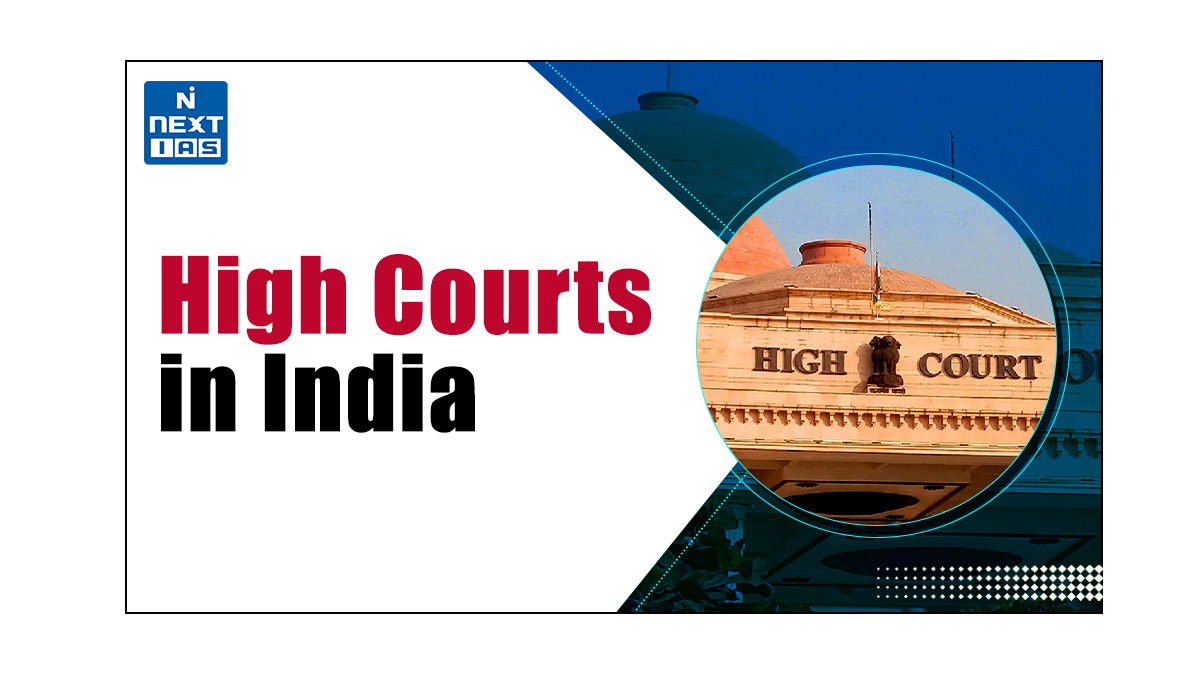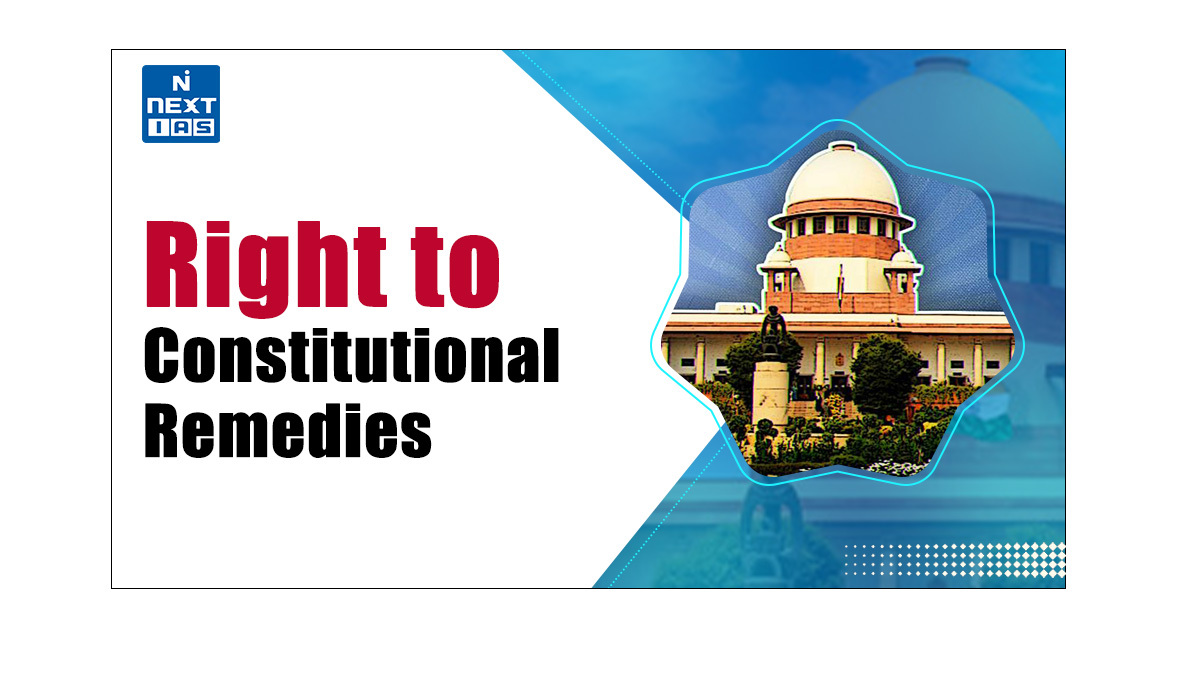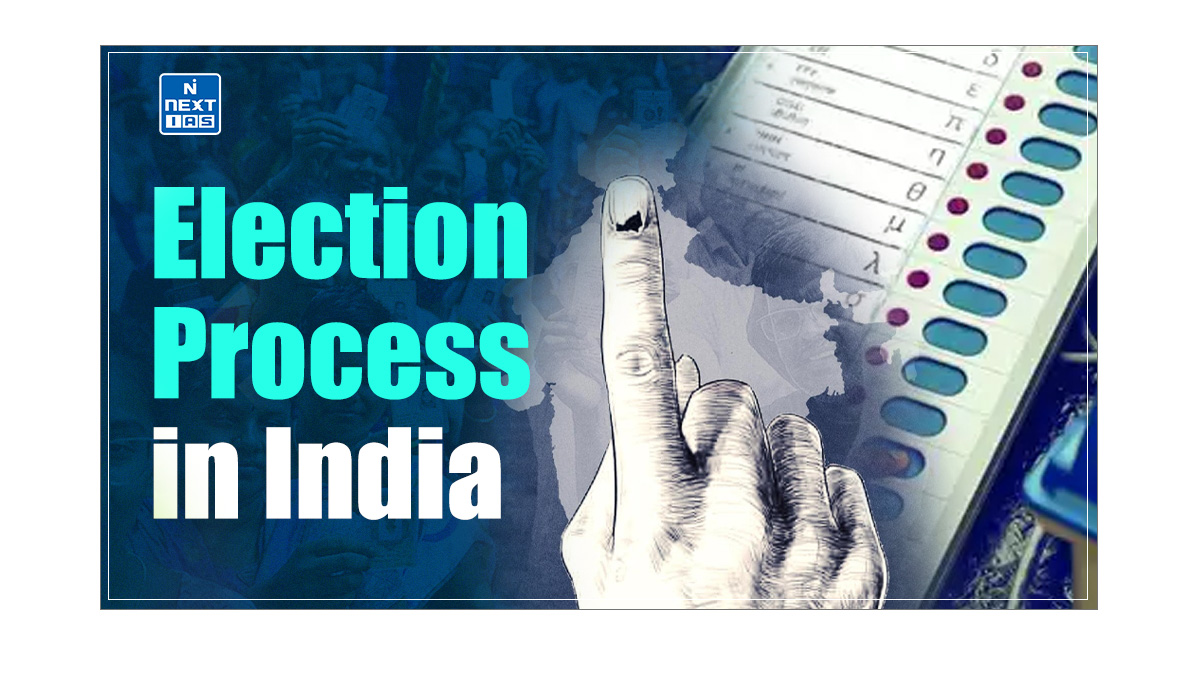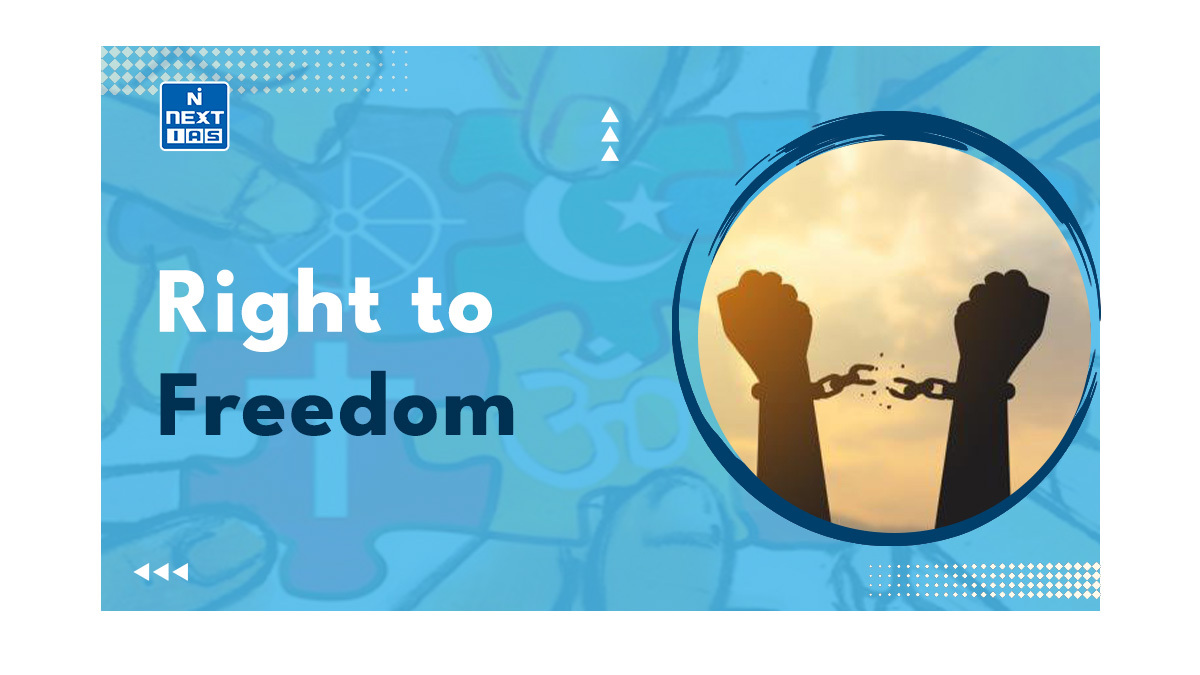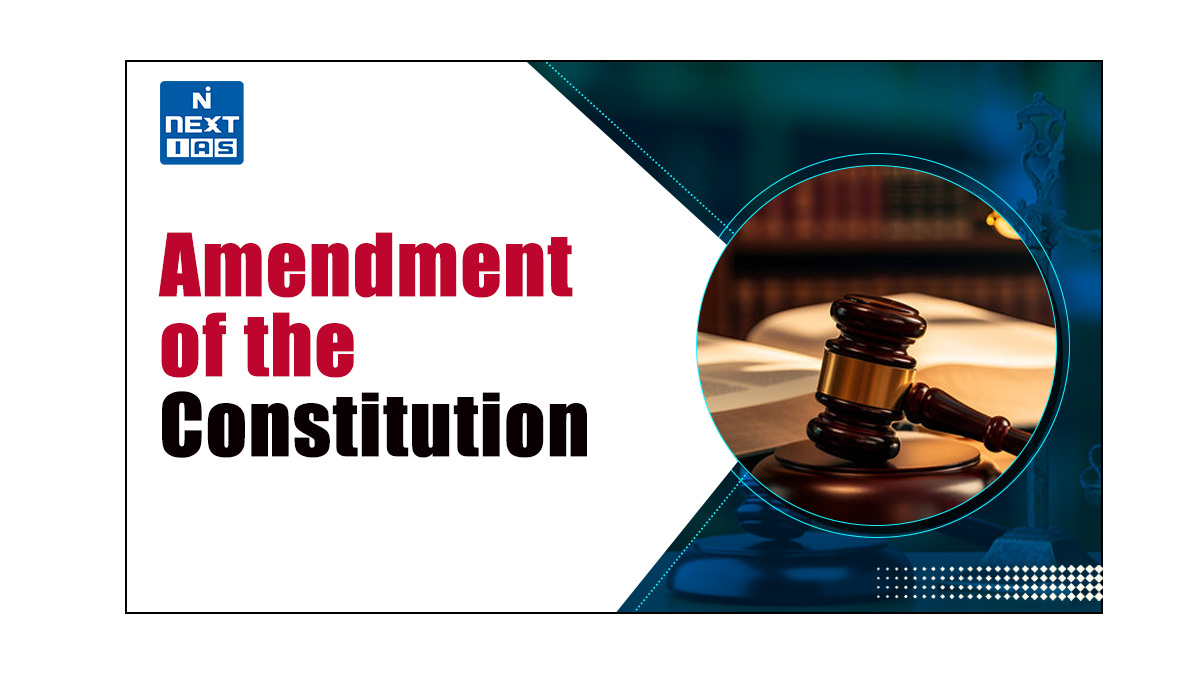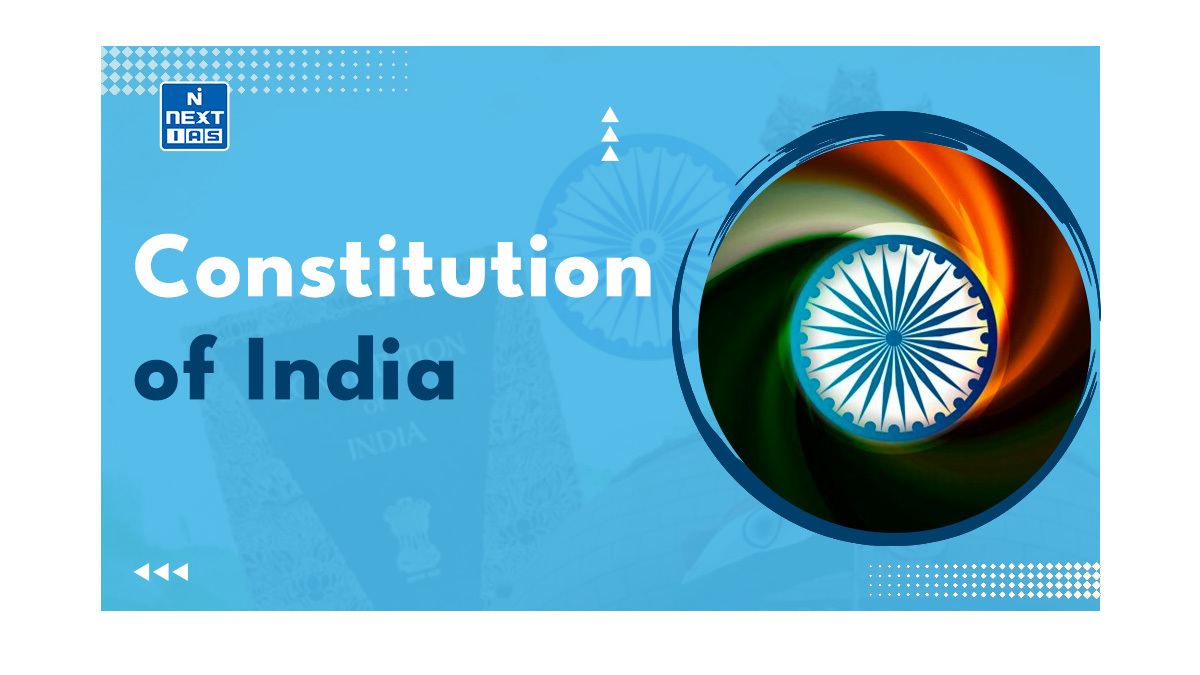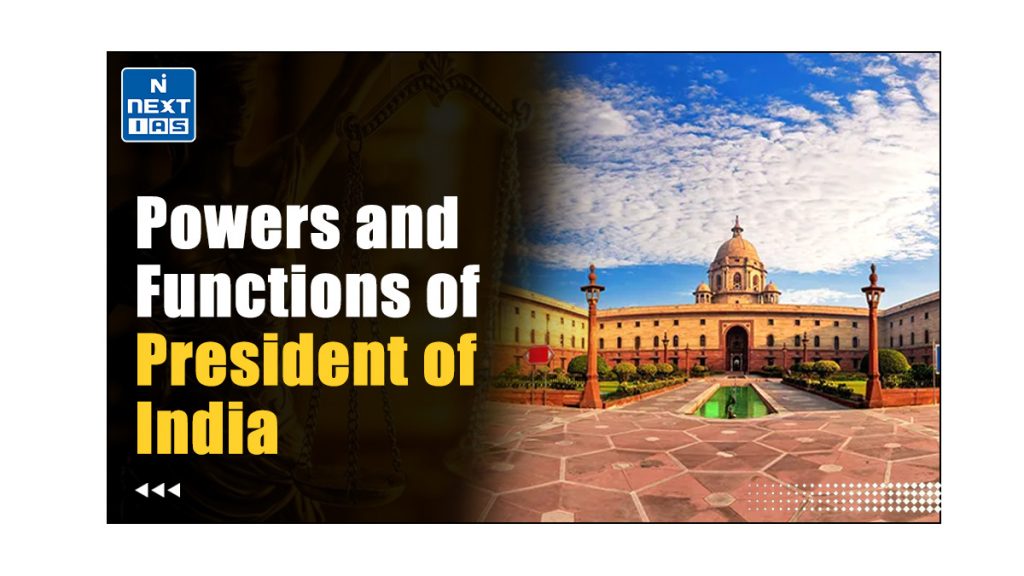
The office of the President of India has been envisaged by the Constitution of India as the constitutional head of the Indian State. Despite being only a nominal head of the Executive, the President of India plays a significant role in Indian polity through his/her diverse executive, legislative, and judicial powers. This article aims to study in detail the President of India, its powers, functions, and other related aspects.
About President of India
- The President of India is the highest office of the land under the constitutional framework of India.
- The office of the President of India has been envisaged as:
- The head of the Indian State,
- The first citizen of India,
- The Titular or nominal or de jure head of the Union Executive, and
- The Commander-in-Chief of the Indian Armed Forces.
| The Union Executive consists of: – The President of India, – The Vice-President of India, – The Prime Minister of India, – The Council of Ministers (CoM), and – The Attorney General of India (AGI) |
Read our detailed article on the President of India.
Powers and Functions of the President of India
The role of President in India is to be the ceremonial head of state and the supreme commander of the armed forces, representing the unity and integrity of the nation. The power and position of President is to hold significant authority, though largely ceremonial, with powers exercised on the advice of the Prime Minister and the Council of Ministers, making the position primarily symbolic within a parliamentary democracy. The powers and functions of the President in India are described in detail in the following sections.
Executive Powers of President of India
The executive powers and functions of the President of India are as follows:
- All executive actions of the Government of India are formally taken in his/her name.
- He/she can make rules specifying the manner in which the orders and other instruments made and executed in his/her name shall be authenticated.
- He/she can make rules for more convenient transactions of business of the Union government and allocation of the said business among the ministers.
- He/she appoints the Prime Minister and the other ministers. They hold office during his/her pleasure.
- He/she appoints the Governors of States, the Attorney General of India, the Comptroller and Auditor General of India, the Chief Election Commissioner and other Election Commissioners, the Chairman and Members of the Union Public Service Commission, the Chairman and Members of the Finance Commission, and so on.
- He/she can seek any information relating to the administration of affairs of the Union, and proposals for legislation from the Prime Minister.
- He/she can require the Prime Minister to submit, for consideration of the Council of Ministers, any matter on which a decision has been taken by a minister but, which has not been considered by the Council.
- He/she can appoint a commission to investigate the conditions of backward classes.
- He/she can appoint an Inter-State Council to promote Centre-State and Inter-State cooperation.
- He/she directly administers the Union Territories through administrators appointed by him/her.
- He/she can declare any area as a Scheduled area and has powers with respect to the administration of Scheduled areas and tribal areas.

Legislative Powers of President of India
The work of President of India is to execute various constitutional duties, including giving assent to bills, appointing key officials, and overseeing emergency provisions when required. The President of India, as an integral part of the Parliament of India, wields the following Legislative Powers:
- He/she can summon or prorogue the Parliament and dissolve the Lok Sabha.
- He/she can also summon a joint sitting of both the Houses of Parliament, which is presided over by the Speaker of the Lok Sabha.
- He/she can address the Parliament at the commencement of the first session after each general election and the first session of each year.
- He/she can send messages to the Houses of Parliament, whether with respect to a bill pending in the Parliament or otherwise.
- He/she can appoint any member of the Lok Sabha and Rajya Sabha to preside over its proceedings when the offices of both the Speaker and the Deputy Speaker (in case of Lok Sabha), Chairman and the Deputy Chairman (in case of Rajya Sabha) falls vacant.
- He/she nominates 12 members of the Rajya Sabha from amongst persons having special knowledge or practical experience in literature, science, art, and social service.
- He/she nominated two members to the Lok Sabha from the Anglo-Indian community. However, the 104th Constitutional Amendment Act of 2019 has discontinued this provision.
- He/she decides on questions as to disqualifications of members of the Parliament in consultation with the Election Commission of India.
- His/her prior recommendation or permission is needed to introduce certain types of bills in the Parliament, including:
- a bill involving expenditure from the Consolidated Fund of India,
- a bill for the alteration of boundaries of states or the creation of a new state,
- a money bill,
- a bill that imposes or varies any tax or duty in which states are interested,
- a bill that varies the meaning of the expression ‘agricultural income’ as defined for the purposes of the enactments relating to Indian income tax,
- a bill that affects the principles on which sums of money are or may be distributable to States,
- a bill that imposes any surcharge on any specified tax or duty for the purpose of the Centre.
- Certain types of bills can be introduced in a State Legislature only with the previous sanction of the President. For example, a State bill imposing restrictions on the freedom of trade, commerce, and intercourse with that State or within that State.
- When a bill is sent to the President after it has been passed by the Parliament, he/she can:
- give his/her assent to the bill,
- withhold his/her assent to the bill,
- return the bill (if it is not a money bill) for reconsideration by the Parliament.
- However, if the bill is passed again by the Parliament, with or without amendments, the President has to give his/ her assent to the bill.
- When a bill passed by a State Legislature is reserved by the Governor for consideration by the President, the President can:
- give his/her assent to the bill,
- withhold his/her assent to the bill,
- direct the Governor to return the bill (if it is not a money bill) for reconsideration by the State Legislature.
- It should be noted here that it is not obligatory for the President to give his/her assent even if the bill is again passed by the State Legislature and sent again to him/her for his/her consideration.
- He/she can promulgate ordinances when the Parliament is not in session. These ordinances must be approved by the Parliament within six weeks from its reassembly. He/she can also withdraw an ordinance at any time.
- He/she lays the reports of the Comptroller and Auditor General, Union Public Service Commission, Finance Commission, and others, before the Parliament.
- He/she can make regulations for the peace, progress, and good government of the Andaman and Nicobar Islands, Lakshadweep, Dadra and Nagar Haveli and Daman, Diu and Ladakh. In the case of Puducherry also, the President can legislate by making regulations but only when the assembly is suspended or dissolved.
Financial Powers of President of India
The duties of President of India is to involve upholding, protecting, and defending the Constitution, ensuring that laws are enacted and enforced according to constitutional provisions. The financial powers and functions of the President are listed below:
- Money bills can be introduced in the Parliament only with his prior recommendation.
- He/she causes to be laid before the Parliament the Annual Financial Statement (i.e. the Union Budget).
- No demand for a grant can be made except on his recommendation.
- He/she can make advances out of the Contingency Fund of India to meet any unforeseen expenditure.
- He/she constitutes a Finance Commission every five years to recommend the distribution of revenues between the Centre and the States.
Judicial Powers of President of India
The judicial powers and functions of the President of India are:
- He/she appoints the Chief Justice and the judges of the Supreme Court and High Courts.
- He/she can seek advice from the Supreme Court on any question of law or fact. The advice tendered by the Supreme Court is not binding on the President.
- He can grant pardon, reprieve, respite, and remission of punishment, or suspend remit, or commute the sentence of any person convicted of any offense:
- in all cases where the punishment or sentence is by a court-martial,
- in all cases where punishment or sentence is for an offence against a Union Law,
- in all cases where the sentence is a sentence of death.
Diplomatic Powers of President of India
The diplomatic powers and functions of the President are:
- The international treaties and agreements are negotiated and concluded on behalf of the President.
- However, they are subject to the approval of Parliament.
- He represents India in international forums and affairs and sends and receives diplomats like ambassadors, high commissioners, and so on.
Military Powers of President of India
The military powers and functions of the President are as follows:
- He/she is the Supreme Commander of the Defense Forces of India.
- He/she appoints the Chiefs of the Army, Navy, and Air Force.
- He/she can declare war or conclude peace, subject to the approval of Parliament.
Emergency Powers of President of India
- The President is empowered to declare the 3 types of emergencies:
- National Emergency under Article 352,
- President’s Rule under Articles 356 and 365, and
- Financial Emergency under Article 360.
Veto Power of President of India
- Article 111 and Article 201 of the Constitution grant the President of India w.r.t. a bill passed by the Parliament and the State Legislatures respectively the following types of Veto Powers:
- Absolute Veto – It refers to the power of the President to withhold his assent to a bill presented to it.
- Suspensive Veto – It refers to the power of the President to return a bill (if it is not a Money Bill) for reconsideration by the Parliament or the concerned State Legislature.
- Pocket Veto – It refers to the power of the President to neither ratify nor reject nor return the bill but simply keep the bill pending for an indefinite period.
Read our detailed article on the Veto Powers of the President of India.
Ordinance Making Power of the President
Article 123 of the Constitution empowers the President to promulgate ordinances during the recess of Parliament.
Read our detailed article on the Ordinance Making Power of the President.
Pardoning Power of President of India
- Article 72 of the Indian Constitution empowers the President to grant pardon/commutation/remission/respite/reprieve to persons who have been tried and convicted of any offence in all cases where the:
- punishment or sentence is for an offence against a Union Law
- punishment or sentence is by a court martial (military court)
- a sentence is a sentence of death.
Read our detailed article on the Pardoning Power of the President of India.
Conclusion
The President of India, as the highest constitutional authority of the nation, occupies a pivotal position in the democratic framework of the country. Despite being only a nominal head of the Executive, the President of India plays a significant role in Indian polity. Through his diverse functions, he ensures the smooth functioning of and coordination among the three wings of the Union government.
Frequently Asked Questions (FAQs)
Explain any two executive power of the President of India.
Two Executive Powers of the President of India:
– The President appoints the Prime Minister, key judges, Governors of states, and other top officials, significantly influencing the functioning of the executive and judiciary.
– The President administers Union Territories through appointed officials and can impose President’s Rule in states, taking over state administration when required.
Mention any two powers of the President.
Two other Powers of the President:
– The President can summon Parliament sessions, dissolve the Lok Sabha, and issue ordinances when Parliament is not in session.
– The President has the authority to grant pardons and reduce sentences, especially in cases involving capital punishment.
